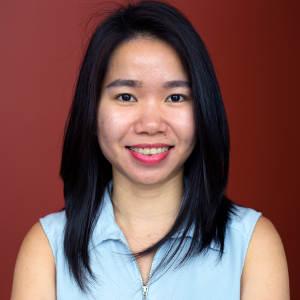
Thanh Nguyen
Associate Professor
Computer Science
Email: thanhhng@cs.uoregon.edu
Phone: 541-346-3974
Office: 303 Deschutes Hall, 1202 University of Oregon, Eugene OR 97403-120
Office Hours: CS471/571: 1:30 pm - 2:30 pm on Wednesdays and Fridays; CS410/510: 2:30 pm - 3:30 pm on Wednesdays and Fridays.
Research Interests: Artificial Intelligence, Machine Learning, Multi-agent Systems, Game Theory, Optimization
Website: https://ix.cs.uoregon.edu/~thanhhng/

